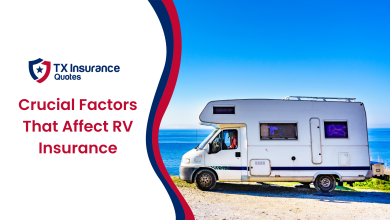4 Insurance Myths That You Should Unlearn Now

When it comes to insurance, people have a lot to say. We can assume that out of 10 people, 5 of them would be telling facts. The other 5? Probably sharing myths that they’ve been told to believe were the truth. It’s understandable if people think those myths are the truth. After all, a lot of adults aren’t well-versed in insurance.
Probably, most of the quote-unquote facts are stories of people who’ve once had insurance. More often than not, those people didn’t have a great experience with their plans. And, that was how insurance myths were born. Sadly, a lot of people apply for insurance without having enough knowledge of how it works just for them to be disappointed.
If you’re one of the people who were taught about myths and happen to believe that they’re true, now’s the time to unlearn those. To help you get started, here are 4 insurance myths and the truth behind them.
1. Don’t hire an insurance broker because they’ll only offer you expensive plans that aren’t useful
A lot of people have this idea that insurance brokers are like con people who take people’s money. Maybe, there are con artists who pretend to be the legit ones. But, licensed brokers won’t make you spend more than you need and can.
Insurance brokers exist to help clients understand the purpose of insurance. Brokers will guide you in choosing the best plan that would provide you with your needs. If you don’t understand a term or policy in your plan, they’ll explain it to you. In short, brokers exist to help you understand complicated matters easily.
First and foremost, if you plan to hire a broker, hire one that is licensed. If you are hesitant to believe that their license is real, look for one that works for or is related to an insurance company. Most brokers are independent. This is because their purpose is to help you find the best plan from different insurance companies.
Before you hire a broker, make sure to ask from a known company. That way, you wouldn’t have to live through the myth that brokers will only offer you expensive plans that aren’t useful.
2. Small businesses don’t need business insurance
Here’s the thing. Big or small, corporate or not, business is business. Just because you’re only starting and new to the field doesn’t mean you don’t need insurance. Any business, big or small, is prone to risks.
One thing to know is that there are a lot of available plans that cater specifically to small businesses. The connotation that only big businesses need insurance is not only wrong but also inconsiderate. Small businesses need protection, too. If you’re wondering why the answer is this: stability.
Usually, when you’re just starting a small business, your funds are limited. In that sense, when a misfortune happens or when a client files a lawsuit against your products and services, your business will be put at risk. Most of the time, when similar situations happen to small businesses, they are forced to close their operation.
It is not only a waste of resources and budget, but also a waste of time and effort. It is normal for a small business to not have a consistent number of sales within its 3 to 5 years of operation. But, if ever a misfortune happens and your business has insurance, your capital and money won’t be put to waste. In short, the money and effort you allocate to your business wouldn’t be wasted.
3. You don’t need insurance if you don’t have a family
I beg to differ! The purpose of insurance is not only for people who have families and dependents. Insurance exists to provide an individual with a safety net in the moments one needs it most. To make it clear, insurance isn’t just a life and death matter. So, even though you are single and don’t have anyone to worry about, you still have yourself.
A lot of people think that insurance plans are limited or the same. But, that’s not the case. There are plans available to cater to individual needs as well. For example, if you’re single, you can apply for Health Insurance that will cover your costs in case you’re hospitalised.
Or maybe you’re the rich aunt who has a lot of properties and assets. Aside from your wills and testaments, you can also apply for insurance that will protect those assets, too. You can choose and manage where your assets will be given or what will happen to them once you die.
There are a lot of things to consider and prioritise even though you don’t have your own family. Your health is one of them. So, just because you’re single doesn’t mean you don’t need insurance. Keep in mind that if you can’t cover your bills once a misfortune happens, insurance can help you get back on track.
4. You can’t benefit from a plan unless you die
This belief is one of the oldest myths and one that is wrongly illustrated in movies and shows. Yes, there are life plans where your beneficiaries will only benefit from it once you die. But, that does not apply to ALL plans.
It is important to be aware that insurance is not limited or fixed. Different types of plans exist to support certain situations. For example, health and long-term insurance don’t require the insurer to be dead just so dependents can benefit from the plan.
The truth is, there are terms and policies in each plan. To benefit and claim your payouts, you need to qualify to certain terms. For example, if one of your dependents is hospitalised and your term states that general surgery is covered, your plan can cover those expenses.
The myth that death is the only key for dependents to claim a payout or benefit is not only absurd but plain ignorant.
Learn, educate, and share your knowledge about insurance to help others unlearn the myths
Nowadays, information is just at the tip of our hands. It’s easy now to do fact checks and to learn about matters that were once hard. If you have these myths or similar ones about insurance, now is the time to unlearn them.
Learn about insurance and how it can benefit you in the long run. Then, educate and share your learnings with those who still believe that the myths are true. You might just find yourself getting insurance that will benefit you and align with your goals for the future.




